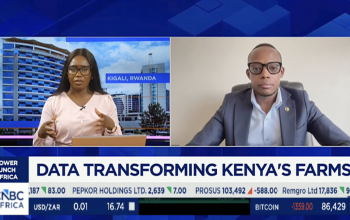BRIAN BOSIRE || THINKER || INNOVATOR || ENTREPRENEUR
“It has become appallingly obvious that our technology has exceeded our humanity.”
— Albert Einstein
We are living through a historic turning point. Advances in robotics, artificial intelligence, and machine learning are not only transforming industries, but also reshaping the very nature of human work and identity. Machines now match or outperform human beings in a wide range of activities — from driving cars and diagnosing diseases to drafting legal documents and answering customer service queries. As these capabilities scale, questions once reserved for philosophers and futurists are becoming urgent societal debates.
The conversation around Universal Basic Income (UBI) has gained renewed attention, framed as a potential solution to mass job displacement. At first glance, the logic seems sound: if machines replace human labor, shouldn’t those displaced receive a basic income to sustain themselves? But the problem is far more nuanced. UBI may address income loss in the short term, but it cannot solve the deeper existential challenges posed by automation. It doesn’t provide purpose. It doesn’t address the human need to contribute, to create, or to be part of something larger than oneself.
Work, as we know it, fulfills more than just economic needs. First, it offers a means of survival — to earn, pay bills, buy food, and secure shelter. But beyond that, work provides structure and meaning. It wards off boredom, supports mental health, and keeps people connected to a shared sense of progress. Finally, work plays a crucial social role — it keeps people engaged and reduces the space for anti-social behavior. It helps societies function by grounding individuals in responsibility and contribution. A monthly UBI payment, no matter how generous, cannot replace that.
The real threat is not just job loss — it’s the uneven and unjust nature of who gets displaced and who thrives. According to the McKinsey Global Institute, while only about 5% of occupations can be fully automated using current technology, about 60% of all jobs have at least 30% of activities that could be automated (McKinsey, 2024). These are not niche professions — they include cashiers, factory workers, data entry clerks, and delivery drivers. These are the high-volume, low-pay roles that keep economies running but are now the most vulnerable to being replaced by machines.
For lower-income populations, particularly those in the informal sector, automation is a looming threat to survival. In Africa, where the informal economy accounts for over 80% of employment in some countries, the transition could be devastating if not managed with foresight. These workers often lack access to re-skilling opportunities, internet connectivity, or even the digital literacy required to adapt. Left unchecked, automation could deepen existing inequality and disenfranchise entire generations.
The COVID-19 pandemic was a preview of how unequal this disruption can be. Physical, manual laborers were the hardest hit, while digital workers — those with the tools and skills to work remotely — fared far better. We witnessed a global divide where data-driven roles gained value while millions of others lost their livelihoods almost overnight. That experience underscored not just the importance of digital skills, but also the urgent need for inclusive digital transformation that doesn’t leave vulnerable populations behind.
While UBI may buy some time, time alone isn’t enough. Re-skilling is necessary, but without coordinated systems and policies, it will fall short. Employers need incentives to invest in their workers’ development. Governments must introduce forward-thinking tax regimes — such as income tax credits or automation levies — to fund public re-skilling programs and support transitions. We must promote continuous learning ecosystems that equip people with not just technical know-how but also critical thinking, adaptability, and emotional intelligence.
Amid all this, another crisis is accelerating — climate change. And nowhere is this more palpable than in Africa. Climate disruption is not a distant threat; it’s already here. Across the continent, we are seeing increasing frequency and severity of floods, droughts, desertification, and extreme weather events. Agriculture — the backbone of most African economies — is under siege. Crop failures are becoming more common, water scarcity is intensifying, and food insecurity is on the rise.
For African economies that are already grappling with automation and unemployment, the climate crisis compounds the challenge. Displaced farmers and rural workers face a double burden: jobs lost not just to machines, but to the unpredictability of nature. Climate migration is rising, placing pressure on urban systems that are already struggling to provide jobs and infrastructure. Without intervention, we risk cascading failures that span economy, society, and environment.
This is where climate risk intelligence becomes crucial. We need robust systems that can anticipate and model climate impacts at a hyper-local level. From precision agriculture to early warning systems for floods, AI and big data can play a transformative role — but only if these tools are accessible and responsive to the realities on the ground. Climate risk intelligence must be democratized — not just controlled by elite institutions or distant governments. Local communities, farmers, entrepreneurs, and city planners need real-time, actionable insights to adapt, protect livelihoods, and build resilience.
The convergence of automation and climate change is not just a technological challenge — it is a social and moral one. Both trends risk marginalizing the same groups: the poor, the unskilled, and the digitally excluded. And if we are not intentional, we will see a society where a small elite controls both the tools of wealth creation and the narratives that justify it. Platforms like X (formerly Twitter) tend to amplify the voices of tech enthusiasts and venture capitalists, while those most affected by automation and climate disruption struggle to be heard. This imbalance creates fertile ground for mistrust, misinformation, and even rebellion. From conspiracy theories about 5G to rising anti-tech sentiment, we are already seeing cracks in the social contract.
We must be wary of a future where technology evolves for machines and not for people — where the second generation of AI tools are designed to serve earlier versions of robots rather than human beings. The risk isn’t just economic exclusion; it’s the loss of our humanity. The more we automate emotional labor — call centers, elder care, therapy — the more we risk breaking the threads of human connection that hold our societies together.
There is still time to change course. Technology is not destiny — it’s a choice. We must decide to build systems that enhance human dignity, preserve purpose, and foster inclusion. That means designing digital tools that center human experience, creating jobs that combine automation with empathy, and embedding ethical thinking into every stage of technological development.
Universal Basic Income may have a role to play, but it cannot be the endpoint. We need a holistic framework that ensures people are not just economically sustained, but socially and spiritually fulfilled. We need automation ethics, climate justice, and inclusive innovation. Above all, we need to put humanity — in all its complexity and diversity — at the heart of the future.
Because a future that forgets people, no matter how advanced, is not a future worth building.
Brian Bosire is a Technology Entrepreneur building solutions in Climate, Agriculture and Water



